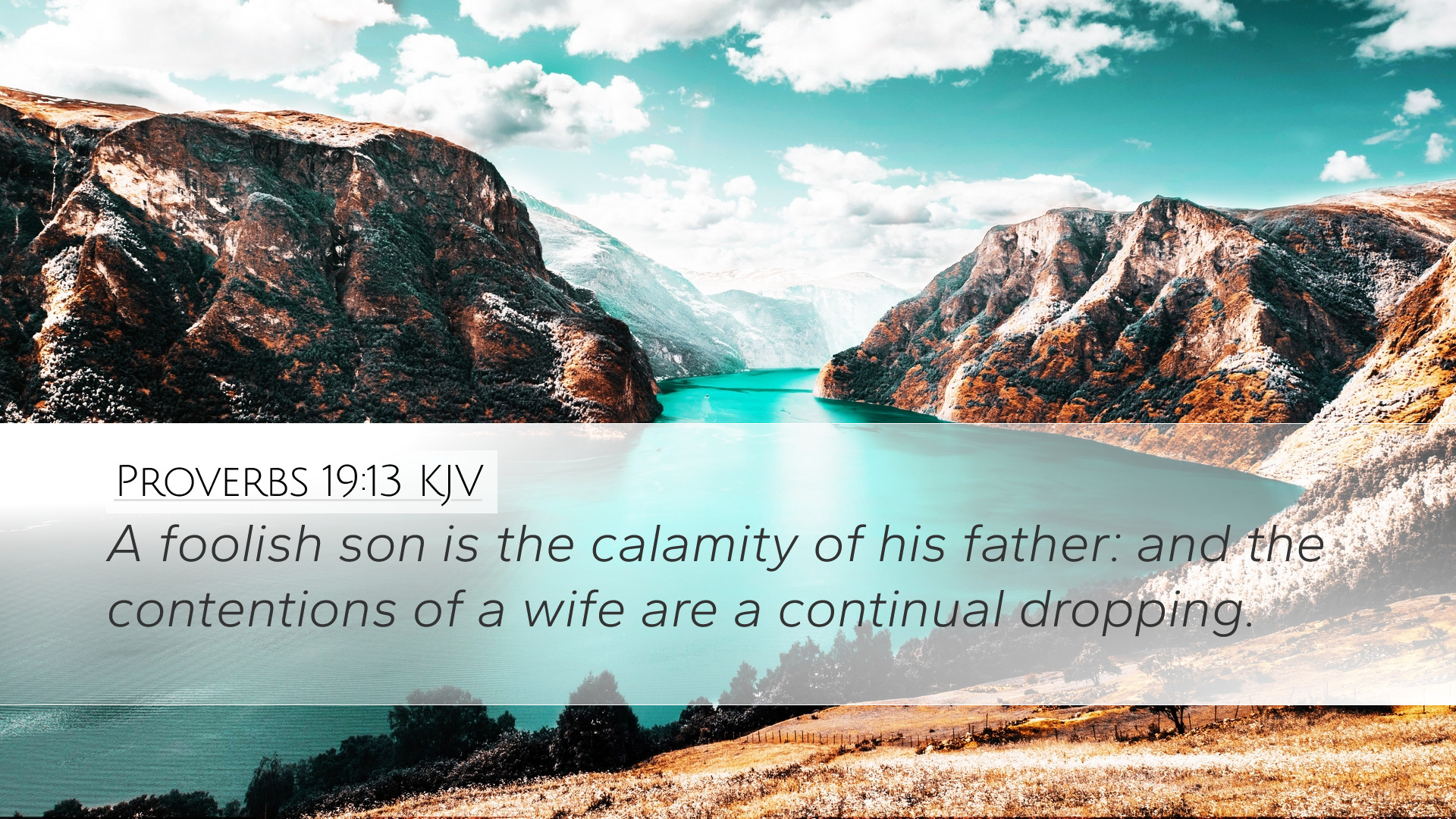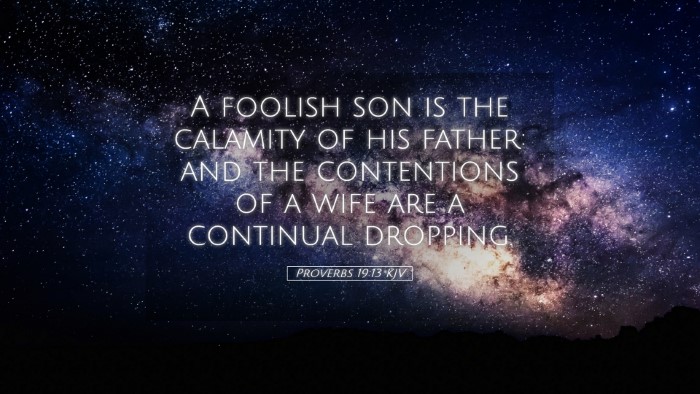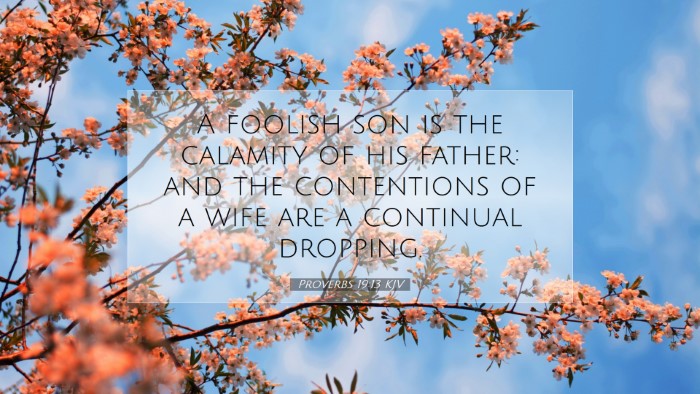Commentary on Proverbs 19:13
Proverbs 19:13 (KJV): "A foolish son is the calamity of his father: and the contentions of a wife are a continual dropping."
Introduction
This verse encapsulates profound truths regarding family dynamics, the nature of folly, and marital relationships. In the cultural and social contexts of ancient Israel, the importance of progeny and marital harmony was paramount. Commentaries from notable theologians provide insights that remain relevant for contemporary readers, emphasizing the moral fabric intertwined in these familial relationships.
Insights from Public Domain Commentaries
1. The Nature of a Foolish Son
Matthew Henry: Henry emphasizes that the "foolish son" signifies not just mental incapacity but moral depravity. A son who walks in folly brings unspeakable sorrow and calamity to his father. As the father invests hope and resources into the upbringing of his children, a son who fails to follow wisdom is seen as a significant disappointment. This folly has both spiritual and practical ramifications, as it disrupts the moral standing of the family.
Albert Barnes: Barnes expands this discussion by stating that the term "foolish" relates to those who lack discernment and godly wisdom. The father's grief is compounded by the potential impact this folly may have not only on the family structure but also on the community at large. In ancient Israel, a son's conduct was reflective of the father’s honor, and hence, his foolishness could lead to communal dishonor.
2. The Contentions of a Wife
Adam Clarke: Clarke draws attention to the phrase "contentions of a wife" as it suggests persistent strife or conflict within a marriage. He interprets this as a spousal relationship that is fraught with disagreement. Such challenges are likened to "a continual dropping," which indicates an incessant irritation or a source of distress over time. Clarke highlights that unresolved disputes can lead to emotional turmoil and diminish domestic peace.
Matthew Henry: Further reflecting on the nature of marital relationships, Henry notes that the contentions mentioned could stem from various sources, including differing values, unmet expectations, or emotional distress. The ‘continual dropping’ metaphor resonates deeply as it illustrates how repeated grievances, like water dripping, can erode a foundation of love and trust in a marriage.
3. The Interplay Between Father and Mother
This verse also subtly reflects the relationship between fathers, sons, and wives. The wife’s contentions can exacerbate the distress caused by a foolish son. Johnson’s commentary suggests that a harmonious relationship between spouses is essential for proper child-rearing. When mothers and fathers are not united, the consequences may ripple through their parental efforts, leading to further folly in the children.
Theological Reflections
The themes prevalent in Proverbs 19:13 can be explored from a theological perspective. God’s expectation for family relationships emphasizes wisdom, love, and mutual respect. Through the lens of Scripture, the folly exhibited in a wayward child and the discord in marriage are both viewed as departures from God’s ideal design for familial structures.
1. The Divine View of Parents and Children
Proverbs consistently illustrates the importance of wisdom in the upbringing of children. The lack of wisdom on the part of a son not only incurs personal loss but also disappoints the parental figure. This points to a broader theological truth about the expectations God has for the family unit—values of wisdom, training, and godliness are intertwined with parental responsibilities.
2. The Role of Contentions in Marriage
From a theological viewpoint, the contention in marriage is an area that deserves deep reflection. Ephesians 5 highlights the significance of love and respect within the spousal relationship. In Proverbs, these contentions reflect a deeper discontentment that could lead to separation from God’s will for the marriage. The call for peace in the home is crucial for fulfilling God’s design.
Conclusion
Proverbs 19:13 serves as a poignant reminder of the energy invested in family dynamics. Insights from notable biblical commentators illuminate the heartaches associated with folly and contention. For pastors, students, and theologians, this verse challenges the faithful to seek godly counsel and wisdom in family matters and strive towards harmony in relationships. Ultimately, the spiritual and emotional well-being of family members is intertwined in life pursuits, and wisdom could serve as the bedrock upon which families can flourish.


